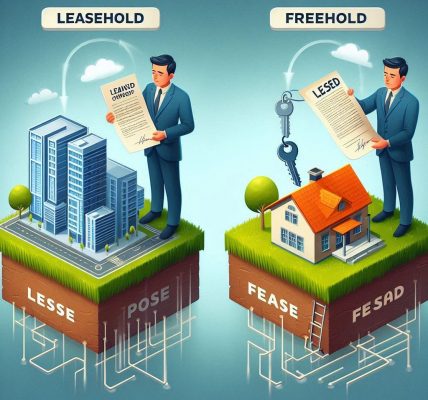Property law is a crucial aspect of legal systems worldwide, governing the ownership, use, and transfer of property. Whether you are a homeowner, a business owner, or someone interested in legal studies, understanding property law is essential. This guide will provide a clear and comprehensive introduction to property law, covering its key principles, types, rights, and implications.
Understanding Property Law
Property law is a branch of civil law that deals with the rules and regulations concerning real and personal property. It establishes the rights and obligations of individuals and entities regarding property ownership, use, and transfer.
Property law governs various aspects, including:
- Ownership rights
- Transfer of property
- Lease agreements
- Easements and land use
- Property disputes and resolution
Understanding these concepts is essential for anyone dealing with property transactions or legal matters related to real estate.
Types of Property in Law
Property law classifies property into two main categories:
1. Real Property
Real property refers to land and anything permanently attached to it, such as buildings, trees, and minerals. It includes:
- Residential property (houses, apartments)
- Commercial property (offices, shops)
- Industrial property (factories, warehouses)
- Agricultural land (farms, ranches)
Real property is subject to various legal rules regarding ownership, transfer, and use, including zoning laws, land registration, and environmental regulations.
2. Personal Property
Personal property includes movable assets that are not permanently attached to land. It is further divided into:
- Tangible personal property: Physical objects like furniture, vehicles, and electronics.
- Intangible personal property: Non-physical assets such as intellectual property, stocks, and bank accounts.
Understanding the distinction between real and personal property is crucial for legal transactions and dispute resolution.
Key Principles of Property Law
Several key principles govern property law, ensuring fairness and clarity in ownership and transactions:
1. Ownership Rights
Ownership grants individuals or entities the right to possess, use, and transfer property. Ownership can be classified as:
- Freehold ownership: Permanent and absolute ownership of land or property.
- Leasehold ownership: Temporary possession granted through a lease agreement.
2. Possession and Use
Possession refers to physical control over property, while use entails how an individual can utilize the property. Laws regulate land use to prevent conflicts and environmental damage.
3. Transfer of Property
Property can be transferred through various means, including:
- Sale: Exchange of property for money through a legal agreement.
- Gift: Transfer without financial compensation.
- Inheritance: Transfer through a will or legal succession.
- Adverse possession: Acquiring ownership through continuous, open, and unauthorized possession over time (subject to legal conditions).
4. Easements and Rights of Way
Easements grant individuals limited rights over another person’s property, such as using a private road or installing utility lines. These rights are legally enforceable and often accompany property ownership.
5. Landlord and Tenant Law
Lease agreements govern the relationship between landlords and tenants, outlining rights and responsibilities such as rent payments, maintenance obligations, and eviction procedures.
Legal Aspects of Property Transactions
Property transactions involve several legal aspects to ensure a smooth and dispute-free process:
1. Title and Deeds
A property title proves ownership, while a deed is a legal document that transfers property rights. Conducting a title search before purchasing property ensures there are no disputes or claims on ownership.
2. Contracts and Agreements
Property transactions require legally binding contracts, specifying terms such as price, payment methods, and conditions for transfer.
3. Zoning and Land Use Laws
Zoning laws regulate land use, determining whether a property can be used for residential, commercial, or industrial purposes.
4. Mortgage and Financing
Many property buyers rely on mortgage loans. Property law governs mortgage agreements, foreclosure procedures, and lender rights.
5. Property Taxes and Liabilities
Property owners are subject to taxes based on assessed value. Failing to pay property taxes can lead to legal penalties or property seizure.
Common Property Disputes and Resolutions
Property disputes arise for various reasons, including boundary disagreements, inheritance claims, and breach of contract. Common resolution methods include:
1. Mediation and Negotiation
Involves resolving disputes amicably through discussions facilitated by neutral third parties.
2. Litigation
Court proceedings are used when disputes cannot be resolved outside of legal action.
3. Arbitration
An alternative dispute resolution method where an arbitrator makes a binding decision.
4. Adverse Possession Claims
If a person openly occupies land without legal ownership for a specified period, they may claim ownership under adverse possession laws (subject to jurisdiction-specific requirements).
Conclusion
Property law is a vital legal field that affects individuals and businesses worldwide. Understanding the principles of ownership, transfer, and legal regulations helps in making informed decisions regarding real estate and personal property. Whether you are buying a home, leasing a property, or dealing with property disputes, knowledge of property law ensures you navigate transactions legally and efficiently.



